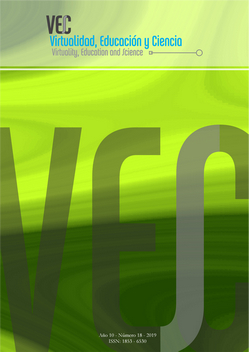Application of the user - centered design in a university course of human – computer interaction for students of Computer Engineering
DOI:
https://doi.org/10.60020/1853-6530.v10.n18.23044Keywords:
User-centered design, Human-Computer Interaction, Software Engineering, prototype, usabilityAbstract
Software Engineering (SE) and Human Computer Interaction (HCI) are two disciplines that pursue quality software products; the first from the functional requirements built in a specific life cycle and the second focusing on the tastes and preferences of users through user-centered design (UCD). In this article, we apply a methodological proposal for the development of software prototypes using the UCD by means of guide templates. It seeks to involve students of Computer Engineering in projects of their interest, integrating HCI topics in analysis and design stages mainly, ensuring a better implementation and release of software when the SE participates. The use of the suggested templates is explained through a case study, obtaining promising results that show its usefulness as a first approximation to the development of quality software.Downloads
Published
2019-01-07
Issue
Section
Innovation and Experiences
License
The generation of derivative works is allowed as long as it is not done for commercial purposes. The original work may not be used for commercial purposes.
How to Cite
Application of the user - centered design in a university course of human – computer interaction for students of Computer Engineering. (2019). Virtuality, Education and Science, 10(18), 81-99. https://doi.org/10.60020/1853-6530.v10.n18.23044


